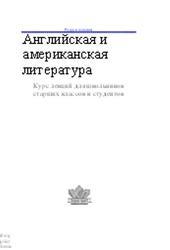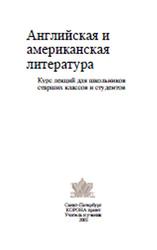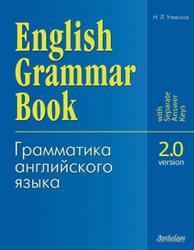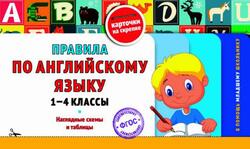Пособие по грамматике современного английского языка предназначено для учащихся VII-XI классов школ с углубленным изучением английского языка, а также для студентов университетов и лиц, совершенствующихся в изучении английского языка на курсах или путем самостоятельной работы.
Цель пособия - помочь учащимся выработать навыки грамматически правильной английской речи.
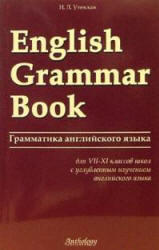
The main kinds of nouns are:
1) proper nouns;
2) common nouns.
Proper Nouns
Proper nouns are individual names given to separate persons and things (personal names, geographical names etc): Ann, Peter, London, Moscow, September, Tuesday. Proper names are always written with a capital letter.
Common Nouns
A common noun denotes not one person or thing, but is common to all persons and things of the same kind: girl, book, house, table, eat, family, coal, oil, love, navy etc. Common nouns are divided into:
a) class nouns,
b) collective nouns,
c) mass nouns,
d) abstract nouns.
Class Nouns
Class nouns denote persons or things of the same class: book, man, dog, engineer, doctor.
Class nouns are countables for they can be counted. Therefore they have two numbers: the singular and the plural.
Collective Nouns
Collective nouns denote a number of individuals or things considered as one complete whole: nation, army, cattle, machinery.
Contents
The Word
The Parts of Speech 9
The Noun 9
Kinds of Nouns 12
Proper Nouns 12
Common Nouns 12
Class Nouns 13
Collective Nouns 13
Mass Nouns 13
Abstract Nouns 13
Gender 16
Masculine Gender 16
Feminine Gender 16
Neuter Gender 16
Ways of Indicating Gender 16
Number 17
The Formation of the Plural 17
Nouns Used Only in the Singular or in the Plural, or in Both Singular and Plural 20
The Plural of the Compound Nouns 21
The Plural of Abbreviations 21
The Plural of Foreign Words 22
Nouns with Two Plurals, Each with a Different Meaning 23
Nouns Having One Meaning in the Singular and Another in the Plural 23
Case 28
The Use of the Possessive Case 28
The Article 33
The Use of the Indefinite Article 33
The Use of the Indefinite Article with Nouns in Set Expressions 35
The Use of the Definite Article 35
The Use of the Definite Article with Nouns in Set Expressions 38
The Absence of the Article 39
Nouns Used in Set Expressions without an Article 41
The Adjective 51
Word Order of Adjectives 56
Comparison of Adjectives 58
Two Ways of Forming the Comparative and the Superlative Degrees 58
Adjectives of One Syllable 58
Adjectives of Two Syllables 60
Adjectives of Three and More Syllables 60
Irregular Forms of Comparison 61
Constructions with Comparisons 62
Use of Some Adjectives 63
The Adverb 70
The Formation of Adverbs 70
Adverbs with Two Forms and Differences in Meaning 71
Kinds of Adverbs 72
Comparison of Adverbs 73
Word Order of Adverbs in the Sentence 74
The Use of Adverbs 76
The Numeral 83
Cardinal Numerals 83
Ordinal Numerals 84
Words and Expressions Used in Mathematics 85
The Pronoun 88
Personal Pronouns - 88
Possessive Adjectives/Pronouns 89
Demonstrative Pronouns 94
Interrogative Pronouns 98
Relative Pronouns 100
Conjunctive Pronouns 103
Reflexive/Emphatic Pronouns 105
Reciprocal Pronouns 108
Indefinite Pronouns 110
Negative Pronouns 113
Much, Many, Little, Few, a Little, a Few 123
The Verb 127
To Be in the Present Simple Tense 127
There Is (Are) Construction 129
To Have in the Present Simple Tense 131
The Use of Tenses 134
Simple Tenses 134
The Present Simple Tense 134
The Past Simple Tense 138
The Future Simple Tense 144
Continuous (Progressive) Tenses 150
The Present Continuous (Progressive) Tense 150
The Past Continuous (Progressive) Tense 159
The Future Continuous (Progressive) Tense 166
Perfect Tenses 168
The Present Perfect Tense 169
The Past Perfect Tense 178
The Future Perfect Tense 182
Perfect Continuous Tenses 185
The Present Perfect Continuous 185
The Past Perfect Continuous 194
The Future Perfect Continuous 203
The Sequence of Tenses 207
Direct and Reported Speech 212
Changing from Direct into Reported Speech 212
The Tense Shift when Changing from Direct Speech to Reported Speech 214
Reported Questions/Indirect Questions 216
Reported Commands/Requests/Suggestions 217
Modal Verbs in Reported Speech 224
Reporting a Dialogue or a Conversation 225
Exclamations/Yes/No Short Answers/Question Tags 225
Conversational Formulas 226
The Voice 230
The Formation of the Passive Voice 231
The Use of the Passive Voice 232
Modal Verbs 240
Can 241
May 248
Must 253
To Have to - Have Got to 262
To Be to 265
Need 268
Ought to 271
Should 272
Shall 277
Will/Would 278
Dare 282
The Mood 288
The Indicative Mood 288
The Imperative Mood 288
The Subjunctive Mood 289
The Subjunctive Mood after the Verb Wish 289
The Subjunctive Mood in Conditional Sentences 294
Unreal Conditions in the Present 294
Unreal Conditions in the Past 295
Mixed Conditionals 296
Inversion in Conditionals 296
The Subjunctive Mood after but for in Conditionals 296
Implied Conditionals 296
The Subjunctive Mood after the Conjunctions as if (as though) 304
The Subjunctive Mood after the Verbs Expressing Orders, Commands, Suggestions 308
The Subjunctive Mood after It is necessary; It is natural etc 311
The Subjunctive Mood after It's (about) time; It's high time 314
The Subjunctive Mood in Adverbial Clauses of Purpose 316
The Verbals (Non-Finite Forms of the Verb) 325
The Infinitive 325
The Use of the Infinitive 326
The Use of the Infinitive without the Particle to 326
The Functions of the Infinitive in the Sentence 327
The Infinitive Constructions 337
The Objective-with-the-Infinitive Construction (The Complex Object) 337
The For-to-Infinitive Construction 344
The Subjective Infinitive Construction (The Nominative-with-the-Infinitive Construction) 349
The Gerund 360
The Forms of the Gerund 360
The Functions of the Gerund in the Sentence 360
The Tense and Voice Distinctions of the Gerund 361
Noun Characteristics of the Gerund 362
Verb Characteristics of the Gerund 362
Constructions with the Gerund 363
Rendering of the Gerund in Russian 363
The Use of Gerund 364
Verbs Used with the Gerund and the Infinitive 368
Verbs Used with the Gerund and the Infinitive without a Change in Meaning 370
Verbs Followed by the Gerund or That-Clause 370
Verbs Followed by the Gerund, the Infinitive and That-Clause 371
The Gerund and the Verbal Noun 372
The Participle 382
The Forms of the Participle 383
The Functions of the Present Participle (Participle I) 383
The Functions of the Past Participle (Participle II) 384
The Tense and Voice Distinctions of the Present Participle and the Past Participle 384
Verb Characteristics of the Participle 386
Adjective Characteristics of the Participle 386
The Objective Participial Construction (The Complex Object) 403
The Subjective Participial Construction 407
The Nominative Absolute Participial Construction 409
The Prepositional Absolute Participial Construction 410
The Nominative Absolute Construction (without a Participle) 415
The Prepositional Absolute Construction (without a Participle) 415
The Preposition 417
Kinds of Prepositions 417
The Place of Prepositions 418
The Use of More Frequently Met Prepositions 418
Prepositions of Place 418
Prepositions of Movement and Direction 421
Prepositions of Time 421
Verbs, Adjectives, Nouns, Participles with Prepositions 430
The Conjunction 438
Coordinating Conjunctions 438
Subordinating Conjunctions 438
The Particle 443
Kinds of Particles 443
The Interjection 444
The Sentence 445
Kinds of Sentences 445
Interrogative Sentences 445
Yes/No Questions 446
Wh-Questions 446
Subject/Object Questions 447
Question Tags 447
Alternative Questions 449
Indirect Questions 449
Short Answers 449
Emphatic Structures 456
Inversion 458
Punctuation 464
The Full Stop 464
The Comma 465
The Semicolon 467
The Colon 467
The Question Mark 467
The Exclamation Mark 467
The Brackets 468
The Hyphen 468
The Dash 468
The Inverted Commas 468
The Apostrophe 469
Abbreviations 469
Letter-Writing 469
Appendices 471
Appendix 1 Summary of Tenses 471
Appendix 2 Irregular Verbs 475
Appendix 3 Prepositional Phrases 481
Appendix 4 Linking Words/Phrases 486
Appendix 5 Phrasal Verbs 491
Appendix 6 Word Families 513
Appendix 7 Idioms 518
Appendix 8 American English 525
Appendix 9 List of Grammar Terms and Key Words 526
Sources 542.
Купить книгу English Grammar Book, Грамматика английского языка, Утевская Н.Л., 2007 .
Купить книгу English Grammar Book, Грамматика английского языка, Утевская Н.Л., 2007 .
По кнопкам выше и ниже «Купить бумажную книгу» и по ссылке «Купить» можно купить эту книгу с доставкой по всей России и похожие книги по самой лучшей цене в бумажном виде на сайтах официальных интернет магазинов Лабиринт, Озон, Буквоед, Читай-город, Литрес, My-shop, Book24, Books.ru.
По кнопке «Купить и скачать электронную книгу» можно купить эту книгу в электронном виде в официальном интернет магазине «Литрес», и потом ее скачать на сайте Литреса.
По кнопке «Найти похожие материалы на других сайтах» можно найти похожие материалы на других сайтах.
On the buttons above and below you can buy the book in official online stores Labirint, Ozon and others. Also you can search related and similar materials on other sites.
Хештеги: #учебник по английскому языку :: #английский язык :: #Утевская
Смотрите также учебники, книги и учебные материалы:
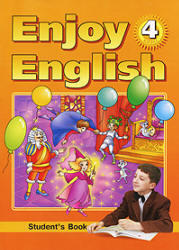 Enjoy English, 4 класс, аудиокурс MP3, Биболетова М.З., Денисенко О.А., Трубанева Н.Н., 2006 — Учебник Enjoy English (4 класс) предназначен для обучения английскому языку учащихся начальных классов общеобразовательных учреждений. Он является третьим учебником курса … Книги по английскому языку
Enjoy English, 4 класс, аудиокурс MP3, Биболетова М.З., Денисенко О.А., Трубанева Н.Н., 2006 — Учебник Enjoy English (4 класс) предназначен для обучения английскому языку учащихся начальных классов общеобразовательных учреждений. Он является третьим учебником курса … Книги по английскому языку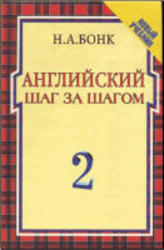 Английский шаг за шагом, том 2, Бонк Н.А., 2001 — Учебник представляет собой вторую часть комплекса Английский шаг за шагом . В совокупности с первой частью он охватывает все основные … Книги по английскому языку
Английский шаг за шагом, том 2, Бонк Н.А., 2001 — Учебник представляет собой вторую часть комплекса Английский шаг за шагом . В совокупности с первой частью он охватывает все основные … Книги по английскому языку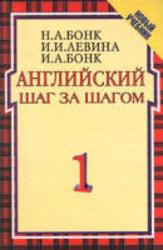 Английский шаг за шагом, том 1, Бонк Н.А., Левина И.И., 2001 — Учебник представляет собой начальный курс английского языка (1-я часть комплекса), в основу которого положен методически новый принцип обучения. Дозированное введение … Книги по английскому языку
Английский шаг за шагом, том 1, Бонк Н.А., Левина И.И., 2001 — Учебник представляет собой начальный курс английского языка (1-я часть комплекса), в основу которого положен методически новый принцип обучения. Дозированное введение … Книги по английскому языку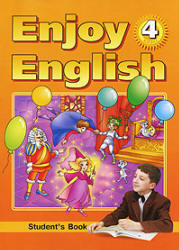 Enjoy English, 4 класс, Students Book, Биболетова М.З., Денисенко О.А., Трубанева Н.Н., 2007 — Учебник Enjoy English (4 класс) предназначен для обучения английскому языку учащихся начальных классов общеобразовательных учреждений. Он является третьим учебником курса … Книги по английскому языку
Enjoy English, 4 класс, Students Book, Биболетова М.З., Денисенко О.А., Трубанева Н.Н., 2007 — Учебник Enjoy English (4 класс) предназначен для обучения английскому языку учащихся начальных классов общеобразовательных учреждений. Он является третьим учебником курса … Книги по английскому языку
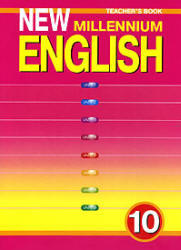 New Millennium English-10, Teachers Book 2009 — New Millennium English-10, Teachers Book, 2009. Книга для учителя к учебнику New Millennium English для 10 класса содержит описание основных … Книги по английскому языку
New Millennium English-10, Teachers Book 2009 — New Millennium English-10, Teachers Book, 2009. Книга для учителя к учебнику New Millennium English для 10 класса содержит описание основных … Книги по английскому языку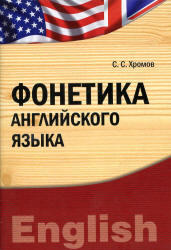 Фонетика английского языка, Хромов С.С., 2012 — Цель пособия в доступной форме изложить и объяснить все существенные особенности фонетики современного английского языка, которые необходимо усвоить для практического … Книги по английскому языку
Фонетика английского языка, Хромов С.С., 2012 — Цель пособия в доступной форме изложить и объяснить все существенные особенности фонетики современного английского языка, которые необходимо усвоить для практического … Книги по английскому языку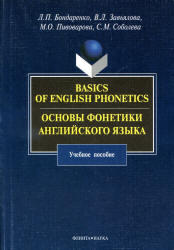 Основы фонетики английского языка, Бондаренко Л.П., 2009 — Настоящее учебное пособие включает материал по практической фонетике английского языка, необходимый и достаточный для проведения вводно-коррективного фонетического курса, а также … Книги по английскому языку
Основы фонетики английского языка, Бондаренко Л.П., 2009 — Настоящее учебное пособие включает материал по практической фонетике английского языка, необходимый и достаточный для проведения вводно-коррективного фонетического курса, а также … Книги по английскому языку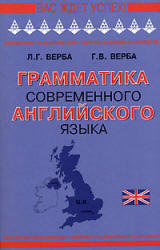 Грамматика современного английского языка, Верба Л.Г., Верба Г.В., 2001 — Справочник предназначен для школьников, студентов и всех, кто изучает английский язык. Теоретический материал закрепляется расширенной системой упражнений. Книги по английскому языку
Грамматика современного английского языка, Верба Л.Г., Верба Г.В., 2001 — Справочник предназначен для школьников, студентов и всех, кто изучает английский язык. Теоретический материал закрепляется расширенной системой упражнений. Книги по английскому языку

